Adaptability is crucial in business to maintain competitiveness. Although efficiency is important, rigid processes can impede innovation and progress. This post delves into the significance of flexibility in today’s business environment and its role in driving company growth. We’ll discuss why adaptability is essential and how it can positively impact your business trajectory.
Embracing Change
Being adaptable is crucial for navigating the ever-changing business environment. Companies that can swiftly adjust to new circumstances gain a competitive edge. This flexibility enables them to respond promptly to evolving consumer preferences, advancements in technology, and fluctuations in the market. Embracing change isn’t just beneficial; it’s essential for sustained success in the dynamic marketplace of today. By staying adaptable, businesses can stay ahead of the curve and seize opportunities as they arise, ensuring their long-term viability and relevance in the industry.
Consider the example of Kodak, a prominent player in the Indian photography industry. Despite its initial success, Kodak struggled to adapt to the digital revolution. With the emergence of smartphone cameras and online photo-sharing platforms, Kodak’s reliance on traditional film-based photography became outdated.
Meanwhile, brands like Xiaomi and Realme swiftly capitalized on the smartphone trend, offering high-quality cameras and innovative features tailored to the Indian market. This adaptability propelled them to the forefront of the industry, leaving Kodak behind.
Innovation and Creativity
Flexibility also fosters innovation and creativity within an organization. When employees are encouraged to think outside the box and explore new ideas, it leads to breakthroughs and advancements that drive growth.
By fostering a culture of innovation, businesses can stay ahead of the competition and continually offer new and improved products or services to their customers.
Google is a prime example of a company that values flexibility and innovation. Known for its “20% time” policy, Google encourages employees to spend a portion of their workweek pursuing passion projects outside of their regular responsibilities. This approach has led to the creation of some of Google’s most successful products, including Gmail and Google Maps, demonstrating the power of flexibility in driving innovation.

Customer-Centricity
In today’s hyper-competitive marketplace, meeting the ever-changing needs and expectations of customers is crucial for business success. Flexibility allows companies to remain responsive to customer feedback and adapt their strategies accordingly. By prioritizing the customer experience and continuously refining products or services based on feedback, businesses can build strong relationships with their audience and foster loyalty over time.
An Indian brand renowned for its customer-centric approach is Flipkart. With features like Flipkart Plus and easy returns, Flipkart has revolutionized online shopping in India. Continuously improving based on customer feedback, Flipkart has become a household name, offering a seamless shopping experience to millions across the country.
Flexibility in Action
Being flexible helps businesses deal with unexpected problems and seize new chances. In today’s unpredictable world, being able to change fast when things outside your control happen is vital. Whether it’s adjusting to new laws, economic troubles, or global emergencies, companies that can move quickly and adapt can survive tough times and come out even better in the end.
Amid the COVID-19 pandemic, numerous Indian businesses adjusted their operations to adhere to lockdown measures and social distancing protocols. Restaurants swiftly transitioned to offering takeout and delivery options, while retailers swiftly embraced e-commerce platforms. Office-based companies adopted remote work setups as the new standard. Through showcasing adaptability and resilience during adversity, these Indian brands not only survived but also flourished in the face of daunting challenges.
Overcoming Resistance to Change
Although the advantages of being flexible are evident, introducing changes in a company can face opposition. Employees might hesitate to adopt new methods or worry about their jobs becoming obsolete. Yet, strong communication and leadership are vital for overcoming resistance and promoting a flexible culture.
By clearly explaining the reasons behind changes and involving employees in decision-making, leaders can gain their support and instill confidence in the organization’s direction.
Additionally, offering training and assistance to help employees adjust to new ways of working or technologies can make the transition smoother and empower teams to embrace change.
Conclusion
In today’s fast-changing business world, being able to adjust and come up with new ideas is crucial for lasting success. Although being efficient is important, sticking too strictly to set ways of doing things can stop growth and creativity. By being flexible, companies can stay ahead, be creative, and build strong organizations that can do well no matter what happens.











